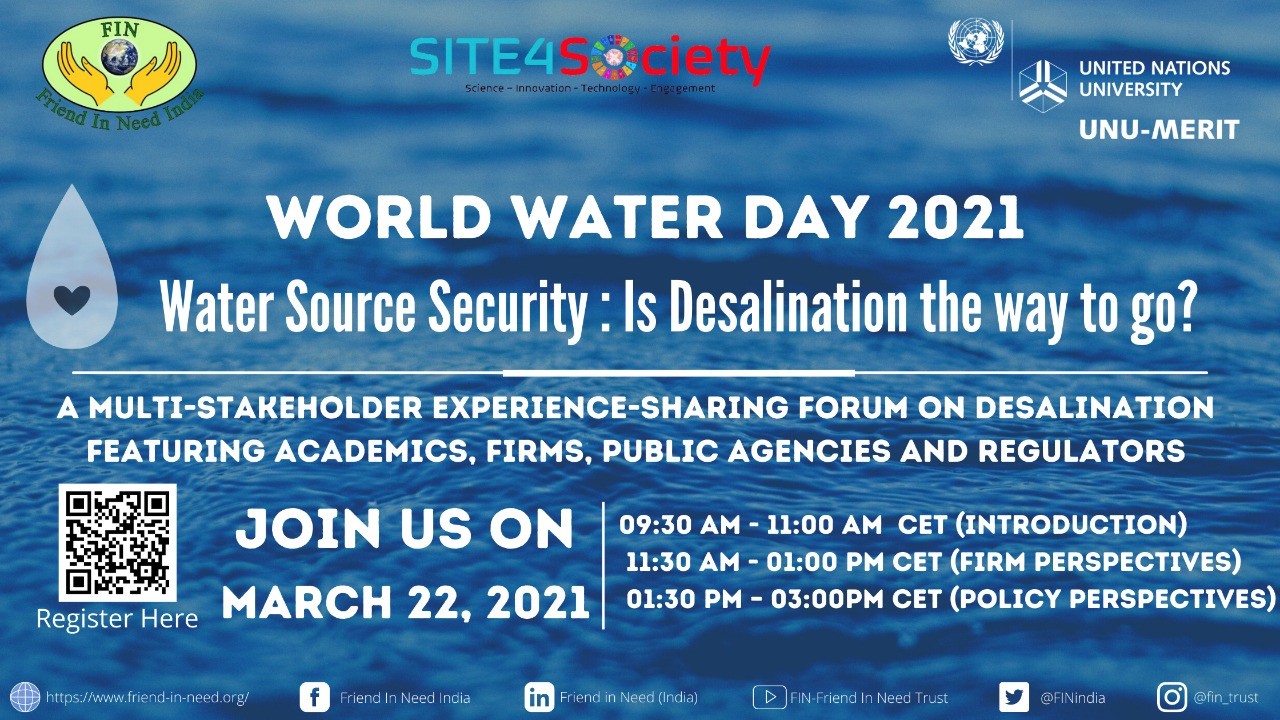Water Source Security: Is Desal the way to go?

Shyama Ramani et al., UNU-MERIT et al.
A multi-stakeholder forum focusing on developing and emerging country plights
Access to water is fundamental to human security. The United Nations defines the human right to water to as the right to sufficient, safe, acceptable, physically accessible and affordable water for personal and domestic uses. Water is required to satisfy the needs of individuals, communities and economic activities for development and growth.
Data reveals that water insecurity or access to an adequate quantity and/or quality is most lacking in developing and emerging countries (see figure). Water insecurity is likely to become the principal limiting factor for sustainable development in these regions. Thus, now more than ever it must be addressed better in order to achieve the 2030 Global Development Agenda.
Currently, many pathways are being explored to lower water stress, ranging from new technologies and exploration of improved/integrated water management practises to better policies for water-related resource allocations. While these are all important, they are all founded on the premise of “Water Source Security”, i.e. the assumption that there is enough water available in the first place. In other words, only if there is a reliable and adequate source of water, can we look into the issue of efficiently managing its supply and demand. But, water source security cannot be taken for granted given climate change and demographic trends! Therefore, on UN World Water Day March 22, 2021 – we have decided to focus upon technology based solutions as it seems to a core part of the future solution (similar to the COVID vaccine that we hope will end the present pandemic).
The water on earth comprises 96.5% saltwater and 3.5% freshwater. Desalination thus possibly holds an important key to breaking the Gordian knot of water insecurity in the developing world. Desalination technologies or ‘desal’ have been growing in importance over the last 50 years and their implementation/diffusion has led to deep learning. While the early plants were costly and energy intensive, there has been a steady decrease in costs and energy consumption. So where are we today and how can we move forward?
To understand and learn more – join our multi-stakeholder forum where experts from public agencies, academic community, social sector and businesses will discuss issues such as:
- What are the different dimensions of Water Source Security?
- What is the state of the art in desalination technologies that are also relevant for resource challenged developing and emerging countries?
- What are their advantages and risks – especially in terms of possible socio-economic and environmental negative externalities?
- What are their cost and implementation challenges?
- What are reasonable long-term goals for diffusion of desalination technology to address water source security in developing and emerging countries?
- What is the potential role of international aid, North-South and South-South inter-organisational cooperation?
- Is there any role/need for social sector actors in the diffusion of desal plants?
- What kind of business models and financial schemes would facilitate the diffusion of desal?
- What policy recommendations can be made?
- How can social scientists (i.e. academics/students like us!) contribute?
Registration required to obtain zoom link before event: https://cutt.ly/jl5q9CU
We look forward to having you with us!
Venue: Zoom
Date: 22 March 2021
Time: 09:30 - 15:00 CEST






